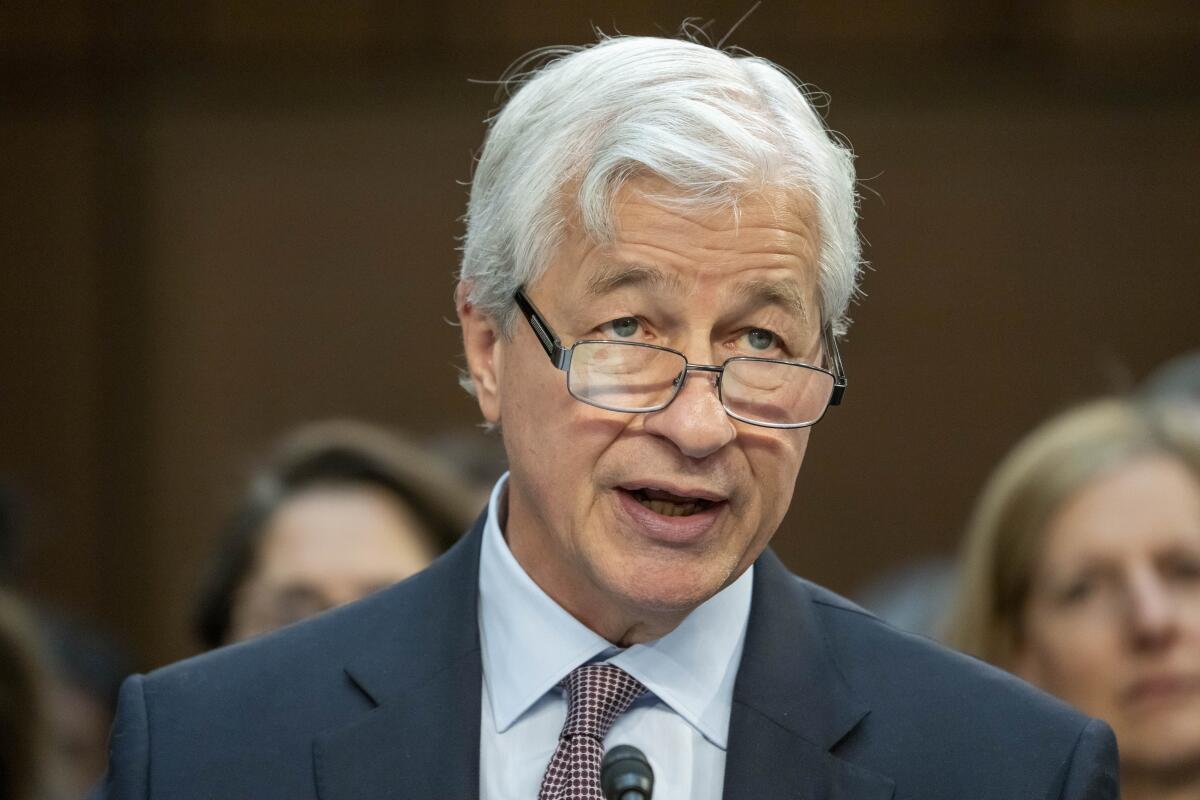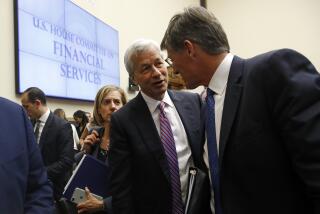JPMorgan’s Dimon warns inflation, political polarization, wars creating risks not seen since WWII

NEW YORK — The nation’s most influential banker, JPMorgan Chase Chief Executive Jamie Dimon, told investors Monday that he continues to expect the U.S. economy to be resilient and grow this year.
But he worries geopolitical events, including the war in Ukraine and the Israel-Hamas war, as well as U.S. political polarization, might be creating an environment that “may very well be creating risks that could eclipse anything since World War II.”
The comments came in an annual shareholder letter from Dimon, who often uses the letter to weigh in on broad topics such as politics, regulation and global events and what it might mean to JPMorgan Chase, as well as the broader economy.
Dimon also used his letter to forcefully defend the bank’s diversity and equality efforts, pushing back on the arguments from Republicans who have said such efforts at Fortune 500 companies, colleges and universities are discriminatory and promote left-wing ideology.
“America’s global leadership role is being challenged outside by other nations and inside by our polarized electorate,” Dimon said. “We need to find ways to put aside our differences and work in partnership with other Western nations in the name of democracy. During this time of great crises, uniting to protect our essential freedoms, including free enterprise, is paramount.”
Dimon had particular concerns with continued large amounts of deficit spending by the U.S. government and other countries, as well as the need for countries such as the U.S. to remilitarize and continue to build out green infrastructure, all of which will probably keep inflation higher than investors expect.
Because of these issues, Dimon said he is less optimistic that the U.S. economy will achieve a “soft landing,” which he defined as modest growth along with declining inflation and interest rates, compared with the broader market. Although he says investors are pricing in a “70% to 80%” chance of a soft landing, Dimon thinks the chances of such an ideal outcome are “a lot less” than that.
Also, at a time when some investors and economists are questioning whether the Federal Reserve can make good on its projection for three interest rate cuts this year, Dimon warned of the possibility of rates rising to 8% or higher. The Fed’s benchmark rate is in a range of 5.25% to 5.50%.
“These significant and somewhat unprecedented forces cause us to remain cautious,” he said.
As he has done in previous letters, Dimon said he continues to believe that the U.S. must take a significant leadership position in the world through trade, military might and a resilient economy backed by strong infrastructure spending. He has long argued that the U.S. must continue to hold its leadership role in the West, or it will eventually cede that role to China as an authoritarian superpower. This includes continuing to support Ukraine in its war against Russia, Dimon argued.
“Ukraine needs our help immediately, but it’s important to understand that much of the money that America is directing to Ukraine is for purchasing weapons and equipment, most of which will be built in America. Not only is our aid helping Ukraine, but it is going directly to American manufacturers, and it is helping the country rebuild our military industrial capacity for the next generation.”
Like many other CEOs, Dimon said he sees promise in the use cases of artificial intelligence. The bank has found 400 use cases for AI so far, Dimon said, particularly in the bank’s marketing, fraud and risk departments. The bank also is exploring using AI in software development and general employee productivity plans.
“We are completely convinced the consequences (of AI) will be extraordinary and possibly as transformational as some of the major technological inventions of the past several hundred years: Think the printing press, the steam engine, electricity, computing and the Internet, among others.”
Of the 61-page letter, Dimon dedicated four pages to the bank’s diversity and inclusion work. His vocal defense of the bank’s DEI initiatives come at a time when shareholder and political activists have called such programs a waste of company resources. Dimon argued that JPMorgan — as the nation’s largest bank — should do as much as it can to help lift all parts of the economy.
“We believe — and we are unashamed about this — that it is our obligation to help lift up the communities and countries in which we do business,” Dimon said. “We believe that doing so enhances business and the general economic well-being of those communities and countries and also enhances long-term shareholder value.”
More to Read
Inside the business of entertainment
The Wide Shot brings you news, analysis and insights on everything from streaming wars to production — and what it all means for the future.
You may occasionally receive promotional content from the Los Angeles Times.










